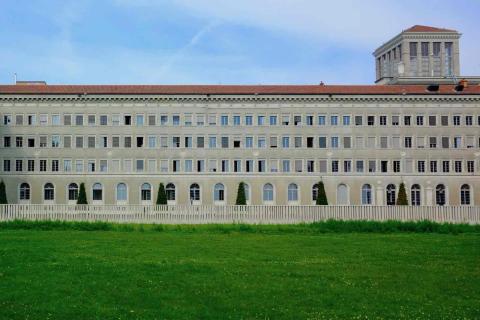This column will appear fortnightly on The Interpreter.
Selling the farm - or not?
Treasurer Scott Morrison’s preliminary decision to block the sale of NSW power distributor Ausgrid to Chinese companies will be a watershed in Australia’s approach to the rise of China. That’s because Australia’s world-beating growth performance over two decades has increasingly been built on export demand from China and Chinese investment boosting asset prices. At the same time, Lowy Institute polling shows ordinary Australians warming to China as Australia’s best friend in Asia, but concerned about too much investment. The defence establishment will be pleased the government has drawn a line in the sand but business (such as IAG) will worry that operating in China just got harder, despite a much vaunted free trade deal. Morrison paved the way for this decision with his rejection of a Chinese bid for the iconic Kidman station and the appointment of former top spy and Beijing ambassador David Irvine to the Foreign Investment Review Board. Read the case for the sale from the Australia China Relations Institute’s James Laurenceson and against it from the Australian Strategic Policy Institute’s Peter Jennings. The uncoordinated way the Port of Darwin was sold to China’s Landbridge Group last year always tilted the scales against Chinese government-owned State Grid Corp. What is more fascinating is that the only alternate bid from Hong Kong-based listed company Cheung Kong Infrastructure has also been sidelined, suggesting Australian government concern about China’s creeping control over the Special Administrative Region. Rejecting a company, founded by HK’s richest man Li Ka-Shing, which has had electricity investments in Australia for almost 20 years is really be a slap to Australia’s biggest trading partner. *

Aid business
When Australia’s biggest investor in PNG, Oil Search, lost its bid for control of the country’s next big gas project to Exxon last month all the focus was on a rare failure for one of the country’s top Asian executives Peter Botten. The jury is still out on that, as Matthew Stevens writes here. What has been overlooked is that Botten has still doubled down on his other role as a leading advocate of business-led development aid in PNG, the neighbour where the world will hold Australia most responsible for any social breakdown. The company has just committed $72 million over five years to the Oil Search Foundation (which is about double the funding since it was founded in 2011) and broadened its role beyond healthcare. When the concept of a social licence is being loudly debated in relation to banking and greyhound racing, Oil Search has the real runs on the board in a place where Australia has a vital strategic interest. Listen to this great Botten interview on ABC Radio National about how he did it. [fold]
Indonesia
With the Trans-Pacific Partnership looking sick due to US presidential politics and the India bilateral trade talks going quiet, trade minister Steve Ciobo is betting big on Indonesia. The Indonesia-Australia Closer Economic Partnership Agreement (IA-CEPA) is novel because the government has given business a big role in deciding what is needed and what is possible. Earlier in the year, Ciobo and his equally ambitious new counterpart Tom Lembong, a US trained investment banker, didn’t need a ginger group to get them going. Now with Lembong sidelined by the big Indonesian ministry reshuffle, business will need to do more to keep the deal alive. The Business Partnership Group, formed back in 2012, has just delivered its latest ideas to both governments. It spurns the nothing is done until everything is agreed traditional trade negotiation approach in favour of early outcomes built around business joint ventures. It might sound idealistic, but world trade growth is slumping ominously amid declining political support for liberalisation. The latest Essential polling shows the sharply negative mood in Australia. So anything new is worth trying to sustain some new economic growth. Jewel Topsfield says Ciobo looked might relieved when the new Indonesian trade minister Enggartiasto Lukita seemed supportive. But this is still early days given the protectionist sentiment afoot.
Trade
Ciobo moved on from Indonesia to Laos for the annual meeting of regional economic ministers with a welcome new Australian presence by his side. Business groups from several diplomatic partners of the hosts such as the US ASEAN Council have long attended this gathering of the 10 member Association of Southeast Asian Nations (ASEAN). But with Australia’s Asia focused businesses fragmented along bilateral business chamber lines, the country hasn’t had a formal voice in the minister/business consultation that goes on at this gathering. However this time the newly revived Australia-ASEAN Business Council was present. This is an overdue development given the government report last year that encouraged companies to pay more attention to the trade and investment growth opportunities in Southeast Asia.
Economics
Aid officials often tout the Productivity Commission as a model for independent economic policy thinking to developing countries, so the agency's latest views can’t be dismissed lightly. The Commission has lambasted the government decision to build submarines in Australia as possibly the most expensive industry assistance scheme ever in its annual Trade and Assistance Review. It estimates the effective rate of assistance could be as high as 300 per cent will revive memories of 1960s style protected manufacturing. The PC has also repeated its opposition to Investor State Dispute Resolution provisions in trade agreements. With the TPP struggling to survive, this continued resistance to these provisions amongst senior econocrats (who instinctively don’t like preferential trade deals) is worth watching.
Photo courtesy of Flickr user: Kevin Dooley
* Editor's note: This item was updated shortly after it posting to reflect the Treasurer Morrison's announcement re the Ausgrid bids.
